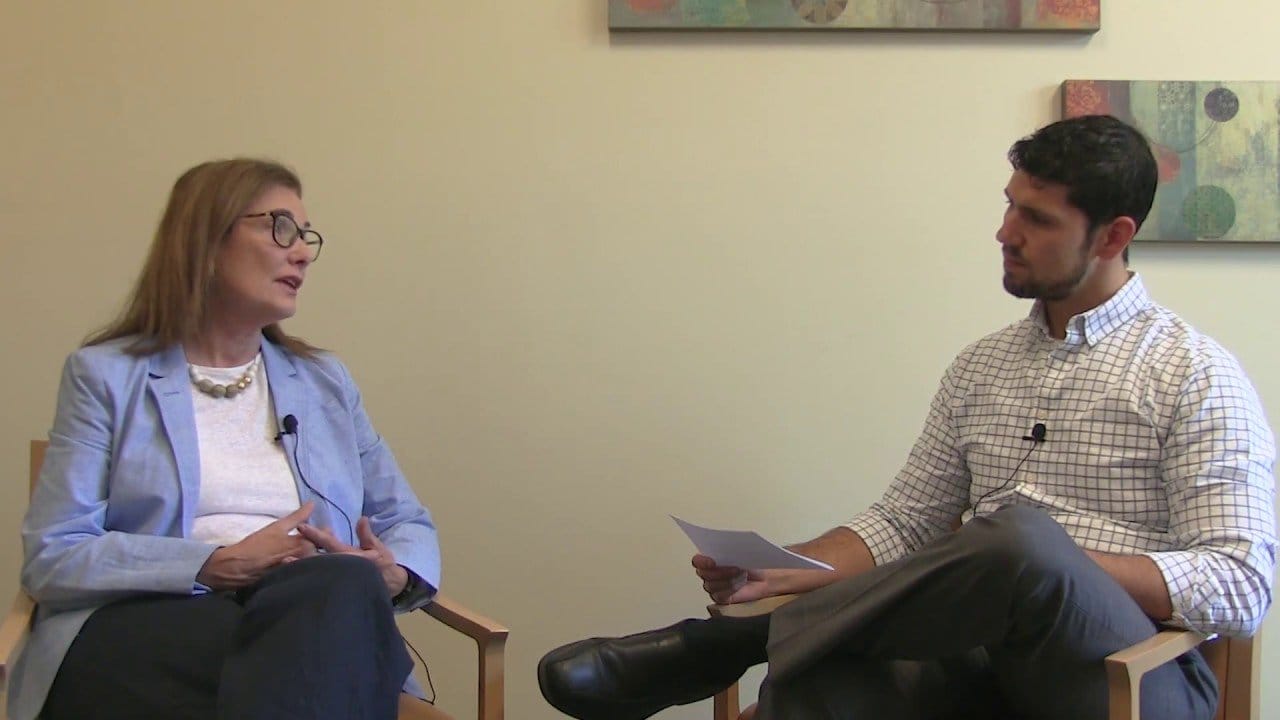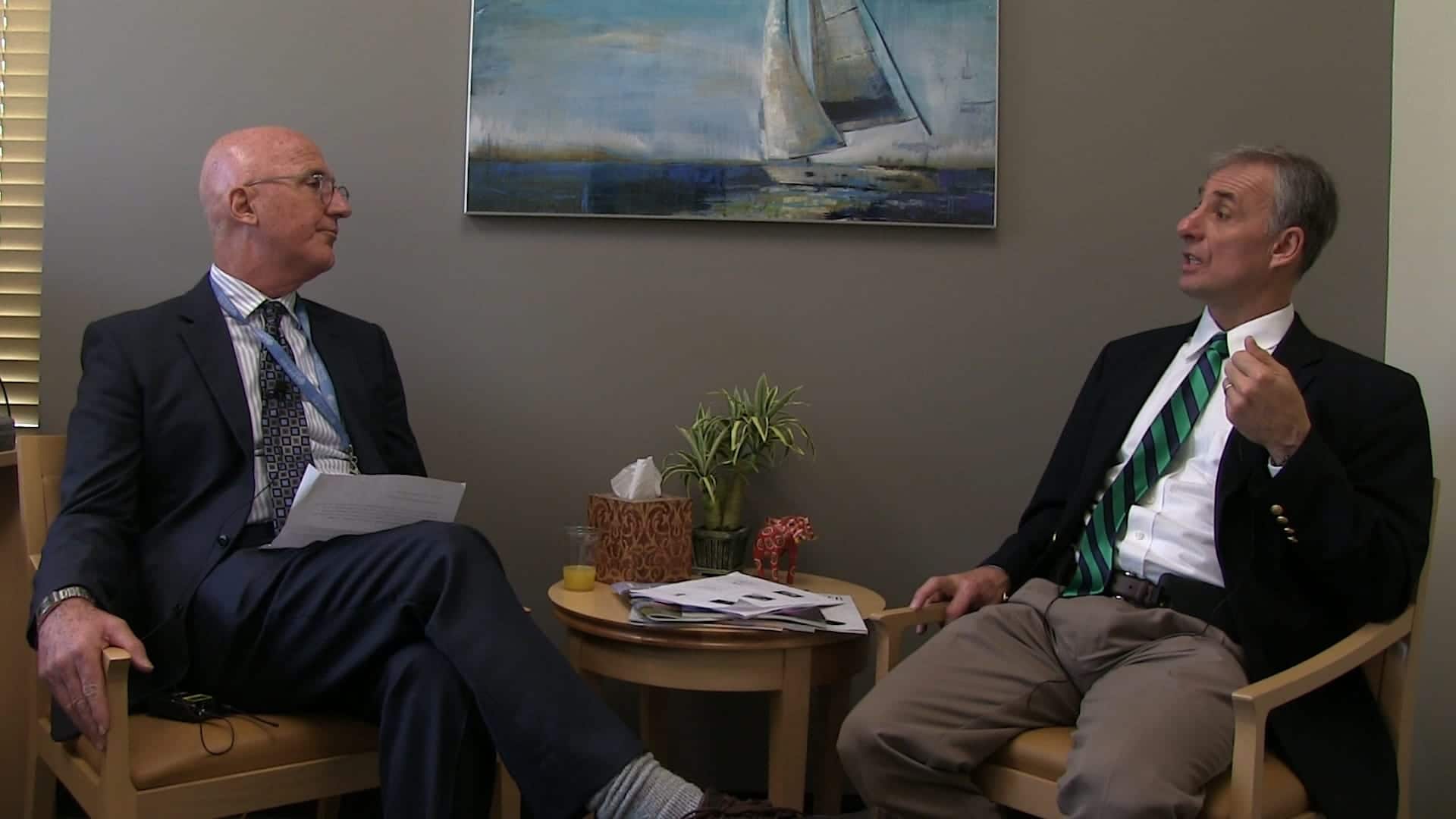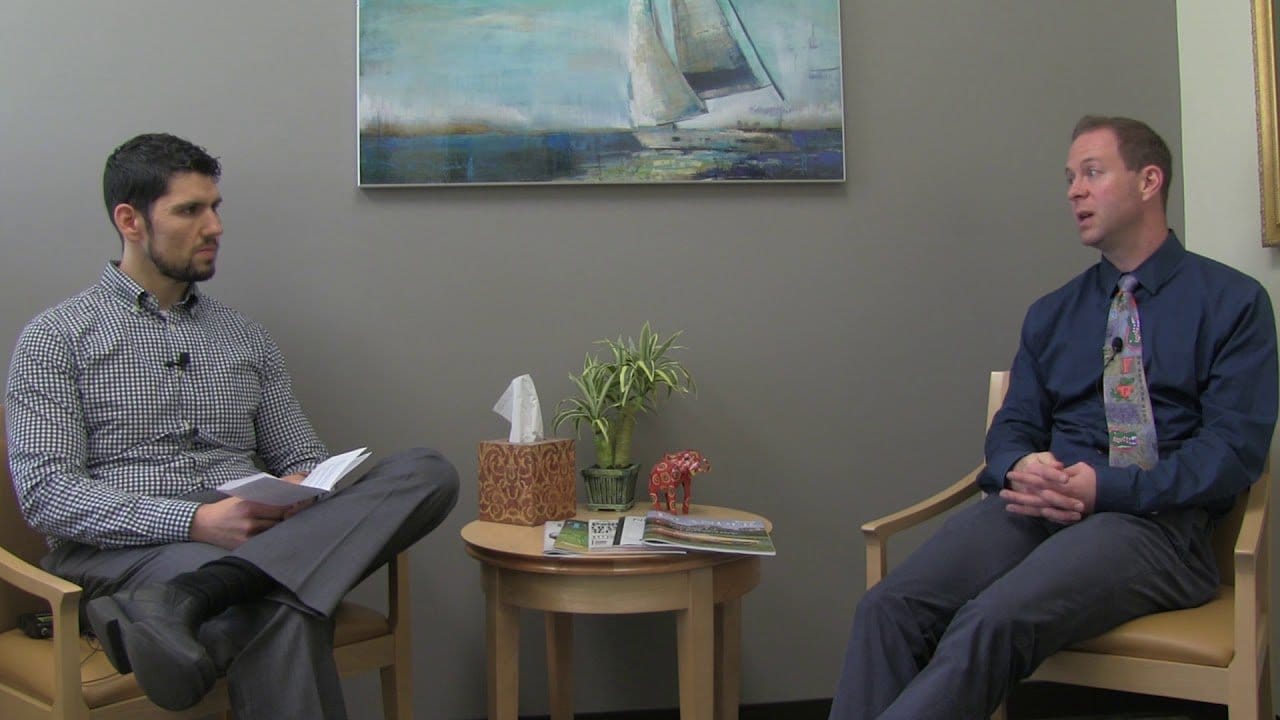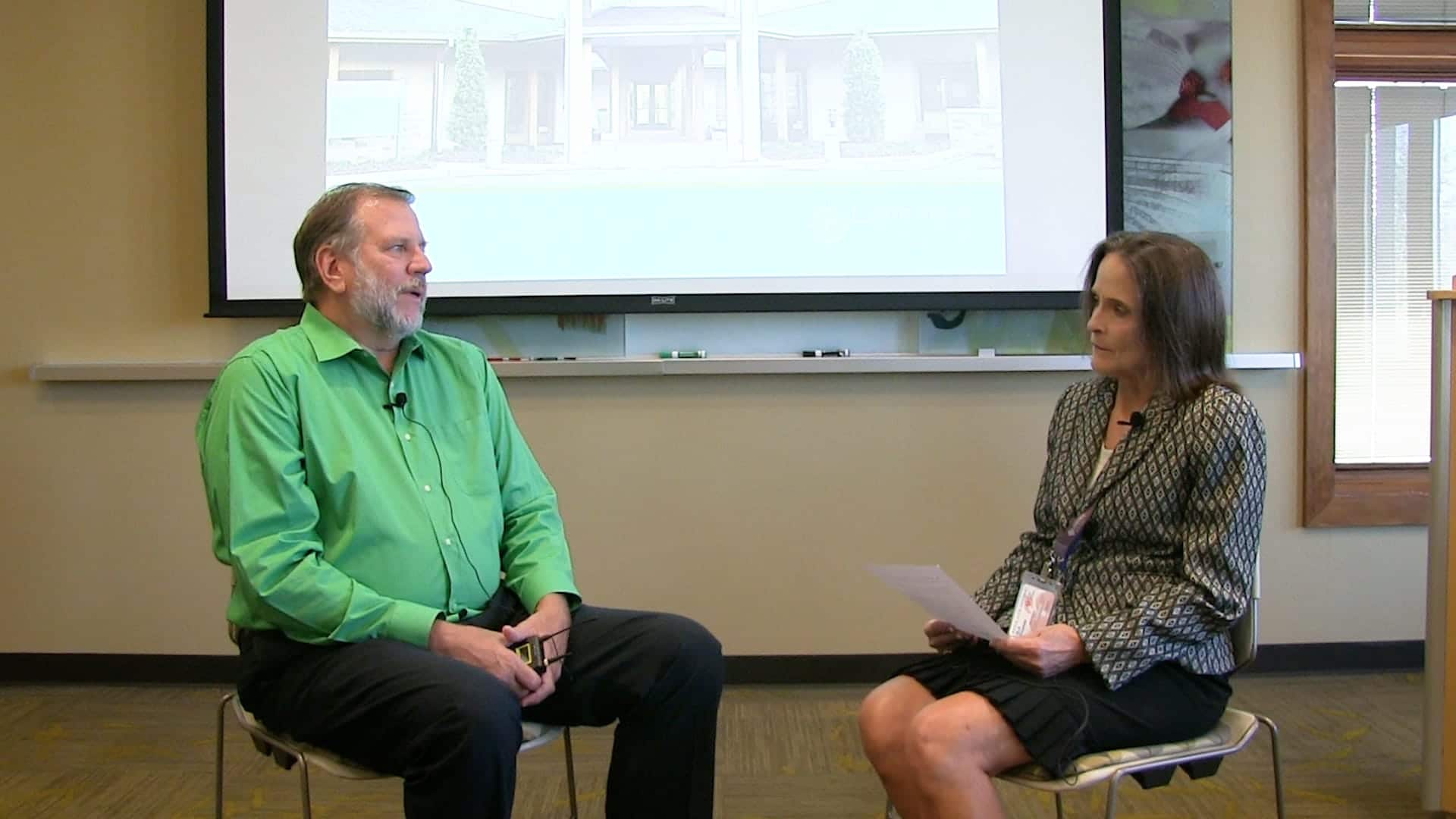In this podcast, we get to talk a little bit with our Recreation Therapist, Emily Dugan, as she explains her role at Lakeview, how recreation therapy really helps people in treatment as well as recovery and her new Sober by Design therapy group.
Podcast Transcript
Gina Thorne: Hello everyone, this is Gina Thorne and I’m here with Emily Dugan, our Recreation Therapist for Lakeview Health and we’re really excited to hear more about what you do here at Lakeview with recreation therapy. So, welcome Emily. Emily Dugan: Thank you! Gina: So to get started, I’m curious to hear more about your background. How did you get into recreation therapy? Emily: Well actually, I had no idea what rec therapy was until I got to college. I started out in emergency medical care and I went on my first ambulance ride and first patient contact and left her at the hospital and my big question was, “What happens next? How is this woman going to heal from this event?” and I realized this is not where I need to be. So I went to the counseling center and I sat down and I said, “I need something where I’m working with patients. I can’t be a nurse, I don’t do blood, so what can I do?” and they said, “You haven’t heard of rec therapy yet?” and I said, “Of course not, because I’m asking you guys right now!” I took my first course and I fell in love with it. With rec therapy, I can work with anybody. We cover from physical disabilities to traumatic brain injuries, people with addiction; all over the board. So I truly fell in love with the fact that this is a whole-body treatment. I’m not just fixing the broken leg or the addiction. I’m fixing the, “Well now you have to go out and live with this. How are you going to make positive changes and have a healthier lifestyle now?” Gina: So a lot of people misunderstand rec therapy to be something you would do with just children. You’re saying here that this is obviously a growth process across all ages and dimensions, which is great. And you’ve applied a lot of your expertise to working with people in recovery and helping them with their sobriety, so how can you describe for us your background and how you’ve been able to apply it here at Lakeview? Emily: Sure. The way that I explain it to the patients is: Rec therapy IS group therapy, however, we are going to be doing an activity along with it. Very, very rarely is it just sitting and having a conversation. However, if something humongous happens in the community, we are going to sit and talk about it. But this is therapy through doing. We’re not just talking about how you can manage your anger, but actually being put in a situation where you start to realize, “I’m getting frustrated with this activity,” pause the activity, “What are you feeling right now? Can you relate to this in some way?” We also do a lot of activities that kind of are revisions of the [12] steps. Explaining that, to complete these, we have to work together. You cannot complete this task on your own; you can also not complete sobriety on your own. You have to rely on others – things of that manner. Gina: So you actually try to apply a lot of the principles of 12-step to the work that you are doing with rec therapy. And obviously we have a lot of young people in our program so are they more responsive in some cases to this concept? Emily: Yes and no. A lot of people don’t know what rec therapy is. They hear rec therapy and they’re thinking, “Oh, so we’re gonna be coloring and playing games.” Yes and no. We are playing games but the games have a point and a purpose. Once they’ve been in a class or two, or a group or two, they really tend to go, “Oh, this clicks.” Especially with our younger patients; there’s a lot of energy. A lot of times, when we sit and just talk, a lot of that energy is focused on, “What’s going on through the window? What’s going on over here? Let me talk to my partner.” If we’re actually physically doing an activity, that really makes things click for them. “I see how this works. I’m physically touching this, I’m physically participating in this conversation.” Gina: Ok, and it sounds like most of your activities are not individualized, but more team oriented so that they have to rely on each other for help and support. Emily: Most of them are. The only one that is more individualized is our Sober by Design art group. This is really an opportunity for you to sit and look at yourself and be able to self-express. Gina: And that’s what Sober by Design is about? Emily: That is what it’s all about. Gina: Ok. So can you tell me a little bit more about that? Emily: Sure! Sober by Design is a new group that we started; it is an art-based group. Everything that we have in there has an art activity associated with it. Right now what we are doing is a mask activity; the front of the mask that we’re making represents the mask that we wear. The happy smile that we like to show the world that everything’s ok face. On the inside [of the mask] I want to see what’s really going on. Is it a crazy mess on the inside? Is it blank? Do you not know what it is yet? So this really gives the opportunity for our patients to express themselves, maybe not with words, but with art. Gina: And so what has been the outcome, in your experience, in working with these patients to come through, who are not always artistic, like they don’t see themselves in that capacity, or just learning how to have fun again, because so much of rec therapy is teaching people to have fun. What’s been the outcome? Emily: You definitely see a change from Day 1 to the day they’re out the door. A lot of our patients come in and they just don’t want to participate. “I’m not going to interact with these people,” as we often hear. Then they realize, “You know what? It’s not these people. It’s us. I’m working with these other people. I can actually communicate. I can express myself. I can do this together.” Gina: Well thank you Emily for the very brief overview. I know there’s so much more that goes on in rec therapy, but this was a great opportunity to connect with you and hear more about it. And if individuals are interested in learning more, please visit our website at LakeviewHealth.com.




